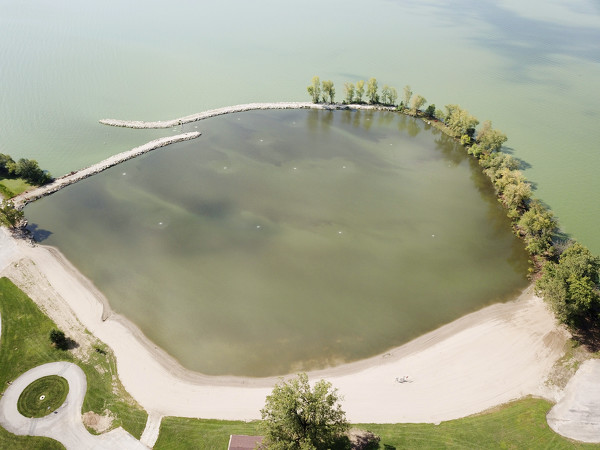Monday, June 8th, 2020
Treatment varies for victims of the virus
By Leslie Gartrell
When people become sick with COVID-19, what is their treatment regiment like? What happens if a person is hospitalized due to COVID-19 complications?
Dr. John Terpstra, an emergency medicine physician and chief of staff at Mercer Health Hospital in Coldwater, said treatment can vary depending on the severity of symptoms.
Terpstra said he has mostly seen cases involving mild or moderate symptoms, which require a self-isolation period of nearly two weeks.
While some may face more serious complications, Terpstra said he often sees people with mild symptoms who feel better over the course of four to five days after symptom onset.
Those with mild symptoms can use the same over-the-counter medicines as they would for other viruses, the physician said. Cough and cold medicine and pain and fever relievers such as acetaminophen can be used to address symptoms, he added.
People who are sick with COVID-19 are told to stay home except to get medical care and self-isolate as much as possible. People should stay in a specific room as much as possible and should use a separate bathroom if available, according to the Centers for Disease Control and Prevention.
Terpstra said when people with COVID-19 are hospitalized or go to the emergency room for treatment, it is often for difficulty breathing.
People who are elderly or have underlying health conditions, such as chronic lung or heart disease, are more likely to be hospitalized, he said.
For those who are hospitalized, Terpstra said the main form of treatment is respiratory support. Supplying oxygen to the lungs through a nasal mask or other means is one of the most common treatments the hospital has used, he said. In some serious cases, people have to be intubated and put onto a ventilator.
Ventilators act as machines to help a person breathe, or even breathe for them, by placing a breathing tube into the throat and windpipe that blows air directly into the airways, according to the National Heart, Lung and Blood Institute.
Medications such as hydroxychloroquine and Remdesivir have been touted as potential treatments for people who are hospitalized with COVID-19. Terpstra, however, has remained incredulous of their effectiveness and availability.
The physician said hydroxychloroquine was in favor for months after small, observational studies claimed it could help fight COVID-19. But one such study was uncontestedly small, he said, as it only had 60 participants.
"Usual studies have five, 10, 20 thousand people," Terpstra said. "And hydroxychloroquine has a panel of adverse reactions."
Terpstra said the most significant adverse side effect from the anti-malarial drug is heart arrhythmia, which can cause the heart to beat too fast, too slow or irregularly. According to the Mayo Clinic, heart arrhythmia is associated with an increased risk of blood clots or heart failure.
Other studies have suggested the drug has shown no noticeable improvement in the people who take it, Terpstra added.
Another drug, remdesivir, received emergency use authorization in early May to treat COVID-19. A study published in The New England Journal of Medicine said that the drug was superior to placebos in a double-blind, randomized, placebo-controlled trial in adults hospitalized with COVID-19 with evidence of lower respiratory tract involvement.
However, Terpstra said Mercer Health, like many hospitals, do not have access to remdesivir because supplies are limited. The physician said the hospital does not use hydroxychloroquine or remdesivir to treat patients with COVID-19. Instead, they use convalescent plasma.
Convalescent plasma is plasma collected from people who have had COVID-19 and recovered. Antibodies from the virus remain after a person recovers, and Terpstra said treating hospitalized patients with convalescent plasma has been the most promising treatment regimen so far.
If a person has to be transferred to another hospital for treatment, such as Miami Valley Hospital in Dayton, Terpstra said the goal is to get the convalescent plasma in 24 hours or less. The earliest local physicians have been able to acquire convalescent plasma has been two days, he said.
The Red Cross collects donated plasma for hospitals to use, Terpstra noted. The physician said he was pleasantly surprised at the amount of people who volunteer to donate after recovering.
"Most people have said they want to donate and ask what to do," he said.
Antibody testing is available at Joint Township District Memorial Hospital and several Mercer Health offices.
While health care facilities in some larger cities have been overwhelmed by the COVID-19 pandemic, Terpstra said he was incredibly proud of Mercer Health's staff and employees. The hospital has not had to use their overflow tents or facilities, he said, and the hospital has had plenty of durable medical equipment available, such as ventilators.
Mercer County also had access to testing materials early on, which Terpstra said has been invaluable.
"I feel like we've been able to prevent spread in the community because we had testing early on," he said.
The physician said he feels the hospital has done a good job of providing the best care possible during this time.
"We're caring for our family and friends, so we felt we had to be prepared as best we can," Terpstra said. "I feel like we did everything we could."

